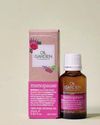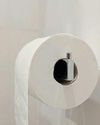
Coffee is truly the drink of our times. As Australians steadily drink less alcohol (Roy Morgan reports that in 2006 73.5 per cent of Australians were regular drinkers, but that figure dropped to 66.3 per cent in 2020) we are embracing coffee in ever-increasing numbers. A few years ago, coffee overtook tea in Australia as the most consumed daily beverage after water. Amble through the doors of virtually any food outlet and you will be promised “barista-made” bounty, even if in some establishments the “barista” is just pushing a button. On the sidelines of sporting fields, at eisteddfods and just about any public event a takeaway coffee cup is an almost essential fashion item. Thankfully, “keep cups” are becoming more and more common as people try to combine their love of coffee with love of the planet.
There is no debate, coffee is popular. This beverage not only drives our food consumption habits; coffee forms a hub for our socialising, shapes our urban design and is a linchpin of global trade. In terms of value, coffee as a world commodity is second only to oil. However you look at it, coffee is certainly on trend, but is coffee’s popularity a good thing? To help make up your mind about it, let’s get Socratic about coffee. Socrates was the guy who supposedly said that the unexamined life is not worth living, so we will follow his lead and truly examine coffee, from tree to lips and beyond.
What are we talking about?
Coffee trees are commercially grown in Africa, Indonesia, Vietnam and South and Central America. Small plantations are also operating successfully in Australia. If you want to blow your mind, take a sip of the stats on coffee.
この記事は WellBeing の Issue 194 版に掲載されています。
7 日間の Magzter GOLD 無料トライアルを開始して、何千もの厳選されたプレミアム ストーリー、9,000 以上の雑誌や新聞にアクセスしてください。
すでに購読者です ? サインイン
この記事は WellBeing の Issue 194 版に掲載されています。
7 日間の Magzter GOLD 無料トライアルを開始して、何千もの厳選されたプレミアム ストーリー、9,000 以上の雑誌や新聞にアクセスしてください。
すでに購読者です? サインイン

YOGA FOR IMPERFECTION
Life is messy and we all make mistakes, but by embracing imperfection, we can begin to accept all parts of ourselves.

Creating the foundations of ritualist self-care
As a busy mum of a three-year-old and expecting another baby, finding time for self-care often feels like a luxury.

Are you doom spending?
If \"doom spending\" has become your go-to for coping with stress, you could be making withdrawals from not just your bank account, but your health too.

THE POWER OF music
Most of us enjoy music. But science shows music is central to being human and its effect on us is far more astonishing and impactful than we realise. Music is fundamental to life.

SYNTHETIC FOODS
Synthetic, or genetically modified, fake meats and the like attempt to mimic real meat in both looks, taste and texture. But how much do we really know about the production process and how do they affect the environment and our bodies?

Embracing the power of nature
Menopause is more than just a biological change, it represents a significant life stage that can present numerous challenges - from hot flushes and mood swings to fatigue and sleepless nights.

Jan Fran
From a young age, Jan Fran's deep curiosity and keen interest in social issues sparked her journey into the world of journalism. As an accomplished journalist, media commentator and broadcaster, Fran's passion for storytelling has always been driven by a desire to explore, question and shed light on the world around her.

Helping teen girls thrive
Statistics reveal that many more teen girls are struggling with mental health issues. What's going on with them? More importantly, what can we do to help them flourish?

Your ageing eyes
Your eyes work hard for you every waking minute. It is no surprise that how your eyes age will be determined by how you protect them. Eating the right foods can go along way towards ensuring that your eyes stay healthy for a lifetime.

The bottom line
During the Couid pandemic, we were shocked to see people fighting in supermarkets over toilet paper and to see empty shelves that had once held roll after roll. The reasons behind the run for toilet paper during this time reflect the unique place that it holds in our psyche and are deeply rooted in our history.